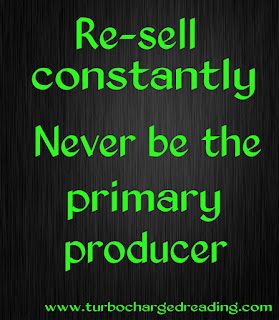Silver birch aka Lady of the woods.
Psychologists say
that power does 4 crazy things to your mind
Drake Baer
Who doesn't desire
power?
There's a little Frank Underwood in all of us.
At the beginning of "House of Cards,"Kevin
Spacey's character explains
why power beats money
Money is the McMansion in Sarasota that starts falling
apart after 10 years.
Power is the old stone building that stands for
centuries.
I cannot respect someone who doesn't see the difference.
But should you find and hold power — as Underwood so
deliciously does
— it's going to do some really weird things to your
perception of yourself and others.
Here's what the
research says:
If you feel powerful, you're more inspired by yourself
than anybody else.
According to a 2015 study led by Gerben A. Van
Kleef at the University of Amsterdam,
powerful people find themselves more inspiring than
anybody else.
In a study of 140 undergraduates, he found that people
who agreed highly to statements like
"I can get others to do what I want" were more
inspired by talking about their own life-changing experiences than hearing
other people discuss theirs.
To Research Digest blogger Alex Fradera, it's
indicative of self-sufficiency.
"As a matter of course, powerful people don't expect
others to fulfill their needs,
and may therefore find it difficult to consider anyone
else a worthy source of inspiration,"
he writes. "It's a little like a child for whom
no one in the playground is up to scratch,
so they become their own best friend."
If you feel powerful, you're the first to act.
In a 2003 study led by Columbia University
psychologist Adam Galinsky, people who felt more powerful than their peers were
more likely to take a card in a game of blackjack,
fix an annoying fan in a room, and take action in social
dilemmas.
A 2007 study co-authored by Galinsky added to
that theme,
finding that
powerful people are more likely to act first in a negotiation.
In 2012, the University of Texas' Jennifer A. Whitson
found an explanation as to why:
Powerful people are less likely to perceive — and
remember — constraints to their goals.
It's like how eagles and alligators evolved to have their
eyes close together.
"The vision of predators is fixated on their object
of pursuit — their prey —
leaving little visual room for unexpected danger or
potential threats in their surroundings,"
she and her authors write. "This
directed focus allows them to pounce into action
to secure their meal."
Same for CEOs.
If you feel powerful, you're more likely to cheat.
It's not that men are more disposed to having sex outside
of their marriages than women.
According to a 2011 study led by Joris Lammers
at Tilburg University in the Netherlands,
it's that powerful people are more likely to cheat.
His team surveyed 1,561 professionals, asking how high up
in their organizations they were
and their history or interest in cheating.
"Results showed that elevated power is positively
associated with infidelity
because power increases confidence in the ability to
attract partners," they wrote.
"This association was found for both actual
infidelity and intentions to engage in infidelity
in the future."
Gender didn't matter.
Powerful women were just as likely to have or pursue
affairs as powerful men.
This goes against a commonly held assumption about
cheating. It's not that men are inherently
more likely to cheat than women, it's just that men
are more likely to hold powerful positions.
"As a social psychologist, I believe that the
situation is everything and that the situation
or instance is often stronger than the individual," Lammers
said in a statement.
"As more and more women are in greater positions of
power and are considered equal to men,
then familiar assumptions about their behavior may also
change."
If you feel powerful, you feel distant from other people.
According to Joe Magee at New York University and Pamela
Smith at the University of California
at San Diego, powerful people feel more socially
distant than non-powerful people.
It happens for a few reasons:
• People become close to one another when they
are "symmetrically dependent" on one another and have repeated
interactions, Magee and Smith say. You and your boss aren't symmetrically
dependent; you depend on her approval more than she does yours. But you and the
other people
on her team are symmetrical, so you're likely to become
close over time.
• Research indicates that powerful people don't
need to associate with others in the same way.
• Powerful people have to think more abstractly than
everybody else.
They're concerned with meeting goals more than developing
relationships.
So the isolation is a result of the social situation that
power puts you in
— and the need to get things done.
It works for Mr. Underwood.
http://uk.businessinsider.com/psychological-effects-of-power-2015-3
Turbo Charged Reading: Read more>>>Read
fast>>>Remember all>>>Years later
Contact M’reen at: read@turbochargedreading.com
You can TCR specialist
and language dictionaries that are spontaneously accessed.
I can Turbo
Charge Read a novel 6-7 times faster and remember what I’ve
read.
I can TCR an academic book around 20 times faster and remember what
I’ve read.
Advanced Reading Skills Perhaps you’d like to join my FaceBook
group ?
Perhaps you’d like to check out my sister blogs:
All aspects of regular, each-word reading and education.
TurboChargedReading uses these skills significantly
faster
www.innermindworking.blogspot.com
many ways for you to work with the stresses of life
www.happyartaccidents.blogspot.com
just for fun.
To quote the Dr Seuss himself, “The more that you read,
the more things you will know.
The more that you learn; the more places you'll go.”










